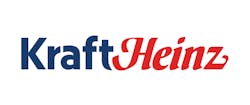Kraft Heinz Reports Preliminary Financial Results For The First Half Of 2019
August 08, 2019 07:42 AM Eastern Daylight Time
PITTSBURGH & CHICAGO--(BUSINESS WIRE)--The Kraft Heinz Company (Nasdaq: KHC) (“Kraft Heinz” or the “Company”) today reported preliminary financial results for the first half of 2019 that reflected lower net sales despite improving consumer takeaway trends in key markets, as well as the adverse impacts of ongoing cost inflation, greater investments, and higher depreciation and amortization expenses. Results also included preliminary non-cash impairment charges related to goodwill and intangible assets that more than offset a one-time gain on the sale of the Company's India nutritional beverages business.
"The level of decline we experienced in the first half of this year is nothing we should find acceptable moving forward," said Kraft Heinz CEO Miguel Patricio. "We have significant work ahead of us to set our strategic priorities and change the trajectory of our business. But in my short time with the company, I have developed a strong appreciation for the affinity consumers around the world continue to have for our brands, the talent and determination of our employees, as well as the commitment of our customers. We have a lot to work with and build upon, and our team is motivated by the opportunity to drive the next phase of growth and profitability for Kraft Heinz and our shareholders."
United States net sales were $8.7 billion, down 1.9 percent versus the year-ago period. Pricing decreased 1.8 percentage points, driven by a 0.9 percentage point unfavorable impact from promotional timing versus the prior year period, increased in-store activity behind Lunchables and certain frozen food categories, as well as price reductions to reflect lower key commodity(2) costs in nuts, dairy and coffee. These factors more than offset price increases implemented in select categories, as well as higher commodity-driven prices in bacon. Volume/mix decreased 0.1 percentage points due to unfavorable changes in retail inventory levels and lower foodservice shipments that more than offset innovation-driven gains in frozen meals and dairy snacking, as well as underlying consumption growth across several areas including nuts, refrigerated meal combinations, and cream cheese.
United States Segment Adjusted EBITDA decreased 14.6 percent versus the year-ago period to $2.4 billion, due to lower net sales, cost inflation in procurement, manufacturing and logistics, as well as strategic investments in e-commerce, marketing and people.
The full report can be found here.
